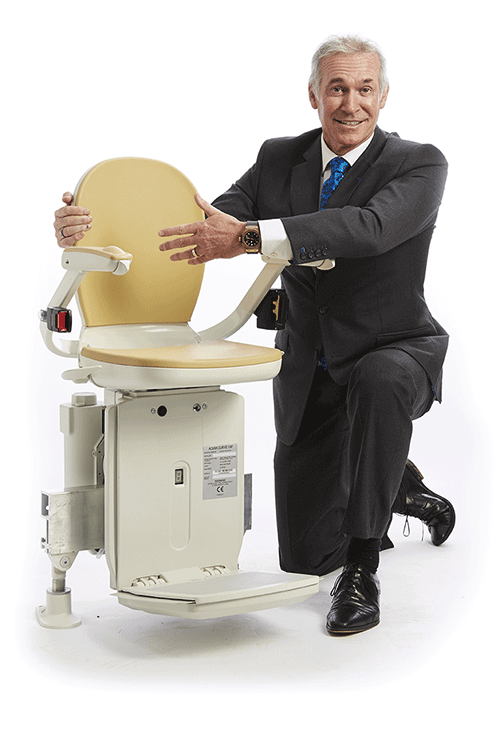Caring for someone you love is one of the most meaningful acts a person can do. It comes from a place of deep love, compassion, and a desire to protect. Yet sometimes, that very love is met with resistance. A parent won’t accept a stairlift. A partner refuses home care. A grandparent insists they’re “just fine.”
If you’ve ever been in this position, you are not alone—and you are not doing anything wrong. Helping someone who refuses help is one of the most difficult and emotionally complex challenges a carer can face. It’s frustrating, painful, and often leaves you feeling powerless, but there is hope.
There are ways to navigate this with empathy, patience, and strength.
Real Strategies for Carers When a Loved One Resists Help
1. Listen First—Even When It’s Hard
Before offering solutions, allow your loved one to speak their truth. Sometimes, the refusal isn't about the help itself, but the fear behind it. Maybe it’s fear of losing independence, admitting vulnerability, or facing change. By listening without immediately trying to fix things, you’re showing respect and giving them space to feel seen.
People are more willing to accept help when they feel heard—not managed.
2. Start with Small Steps
A complete lifestyle change can feel overwhelming. Instead of proposing big shifts all at once, introduce small, manageable suggestions. Maybe it’s starting with mobility aids like grab bars before bringing up a stairlift. Or offering help with one grocery trip instead of every chore.
Small victories build trust and lead to bigger changes.
3. Be Honest—And Be Human
It’s okay to say, “I’m scared for you.” Or, “It hurts me to see you struggle when there are things that can make life easier.” Vulnerability doesn’t weaken your message—it strengthens the relationship. Frame conversations in a way that communicates your concern without criticism.
No one wants to feel like a burden, but everyone wants to feel loved.
4. Choose the Right Moment
Bringing up difficult topics during a crisis rarely goes well. Wait for a calm, quiet moment when neither of you feels rushed or emotional. If your loved one seems especially resistant, try asking questions rather than giving advice.
You might be surprised by what they share when the pressure is off.
5. Offer Options—Not Ultimatums
Nobody wants to feel backed into a corner. Providing choices helps your loved one maintain a sense of control. Instead of saying, “You need to get help,” try, “Would you prefer I help you with this, or would you rather have a professional come in once a week?”
Collaboration invites cooperation. Commands invite resistance.
6. Involve a Trusted Third Party
Sometimes it’s easier to hear advice from someone outside the family. A doctor, spiritual leader, friend, or even another relative might be able to present the idea of support in a way that feels less emotionally charged.
The message may be the same—but the messenger can make all the difference.
7. Respect Their Autonomy While Staying Vigilant
Unless their safety is at immediate risk, give your loved one time to come around. Keep the lines of communication open. Continue to offer support without pressure. In some cases, refusing help is a phase. In others, it might remain a firm stance. Either way, your patience and steady presence will speak volumes.
Caring isn’t about control—it’s about connection.
8. Remember That Help Can Look Different
Help doesn’t always have to mean hiring someone or installing equipment straight away. Emotional support, companionship, or simply checking in regularly can make a huge difference. If traditional forms of help are refused, think outside the box.
Sometimes the most powerful care is the quiet kind—the kind that waits, watches, and stands by.
9. Care for Yourself, Too
It’s easy to lose yourself in worry, frustration, and guilt when someone won’t accept help. But you matter in this equation. You can only care for others when you’re caring for yourself, too. Talk to other carers. Lean on your own support network. And don’t hesitate to seek professional advice when you need it.
Carer burnout doesn’t mean failure. It means you’re human.
You’re Doing Better Than You Think
If you’ve made it this far, then you already care more deeply than most. You’ve tried, you’ve asked, you’ve shown up. And even when your loved one resists, your love is loud enough to be heard in every gesture, every gentle word, and every moment of patience.
At Acorn Stairlifts, we believe that independence and support can go hand in hand. Our stairlifts are designed to preserve dignity while easing daily challenges—because getting help should never feel like giving up.
If your loved one is ready—or even just beginning to consider new possibilities—we’re here to walk beside you both.
Compassionate care starts with understanding. And you're already doing that beautifully.

